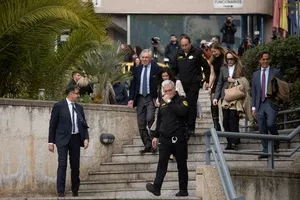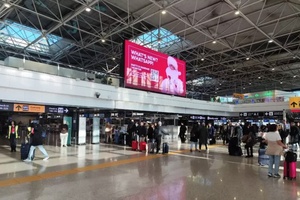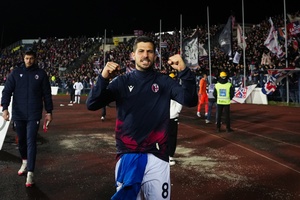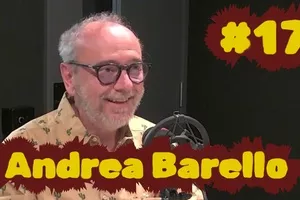Having taught Italian at Galen Catholic College, in Wangaratta, for 44 years, Cudini is far from ready to retire.
In fact, this year, he’s also undertaking the role of Italian Language Hub Leader at the Sandhurst Diocese, helping to keep local Catholic teachers updated linguistically and in the area of methodology.
Last year, Cudini was crowned the 2018 Italian Teacher of the Year in the Unsung Heroes Awards, conducted by Education HQ and Australian Teacher Magazine.
Cudini received a $1000 cash prize, courtesy of Il Globo and La Fiamma, to spend on his further professional development.
In an interview with our publication, Cudini said becoming a teacher was a natural progression for him.
When he graduated from high school, the talented teacher enrolled at The University of Melbourne, the only tertiary institute at the time that offered Italian, a language he’d studied by distance education up until then.
A couple of years into his teaching career, Cudini began working at Galen Catholic College, in Wangaratta, where he’d lived since he and his family migrated from Teor, in the north-eastern Italian region in Friuli-Venezia Giulia.
Though he was just a child when he migrated to Australia, Cudini grew up speaking Friulian dialect at home and learnt Italian from books and trips back to his birthplace.
Cudini introduced Italian into Galen’s curriculum and, over the years, he’s managed to teach many generations of students our beautiful language.
He also founded the Italian Camp, a three-day trip to Myrtleford for students, who are immersed in the language along the way, with the help of mother-tongue speakers.
Around 100 students took part in the last excursions.
The experiences offered to Italian students at Galen are in abundance: there is also an exchange program which allows Year 11 students to spend two months in Italy, while their Italian counterparts spend two months in Wangaratta.
The school also implements the Content and Language Integrated Learning (CLIL) approach, in which students undertake curriculum subjects taught in the Italian language.
The program is offered in Year 9 and Year 10, and as of this year, also to Year 8 students (Religious Education or another humanities subject).
Among the topics proposed by Galen’s team of Italian teachers are “Rivoluzione industriale” (The Industrial Revolution) and “Italian for travellers”, which takes students on a journey through the history and geography of Italian cities.
“With the CLIL program, students can see that Italian is used not just for speaking, but to understand another subject,” Cudini said.
“In doing this, students are able to learn the language at a faster rate.”
Cudini said the highlight of his career is seeing his students’ results and hearing the success stories of Galen alumni, many of whom have benefited from their Italian studies beyond their schooling.
“When you study a language you learn much so more than just the language,” he said.
Undoubtedly, the achievements of Cudini’s students are in large part due to his own enthusiasm and commitment to teaching.
Cudini explained that his career has been enriched by fellow Italian teachers who are just as passionate as he is.
“I continue to teach because I’m fortunate enough to be surrounded by wonderful colleagues,” he added.
“The collaboration, interaction and development of ideas with them are what made me the teacher I am today. We are the product of our environment.”
Cudini works closely with primary and secondary students on a regular basis, conducting training courses and workshops, as well as being president of North East Teachers of Italian (NETI) since its foundation in 1982.
One of the most difficult aspects of Cudini’s career has been convincing those around him to “create a culture in which languages can progress”.
“Languages still aren’t considered by many teachers and parents as an integral part of a school’s curriculum,” he added.
“We have to reach a point where children have more than one mother tongue, like in many parts of Europe, Asia and Canada.
“Geographically speaking, we’re in nearer to Asia.
“Students should speak English, an Asian language and a European language.”
With teachers as devoted as Cudini, this goal could certainly be achieved.
To conclude our interview, Cudini left some words of wisdom for fellow Italian teachers, which can also apply to the wider teaching community:
“Never give up. There is always hope. You never know what kind of influence you may have on students, or how you may impact on them. Persevere, always.”




























